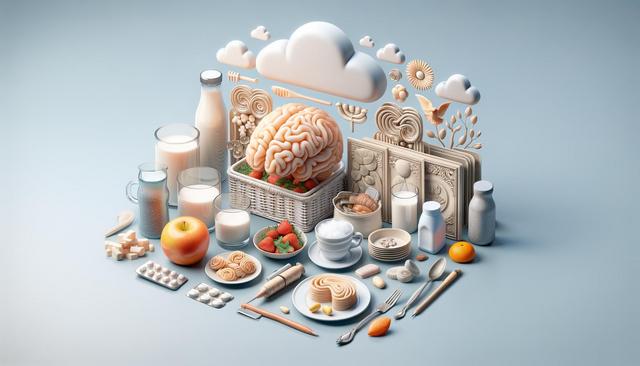What Is Dementia?
Dementia is a general term used to describe a decline in cognitive abilities severe enough to interfere with daily life. It is not a single disease but a group of conditions characterized by impairment in memory, communication, and reasoning. The most common type of dementia is Alzheimer’s disease, but other forms include vascular dementia, Lewy body dementia, and frontotemporal dementia. Each type can present differently, but they all lead to a deterioration in mental function over time.
While age is the strongest known risk factor, dementia is not a normal part of aging. It typically affects individuals over the age of 65, but early-onset forms can begin earlier. The condition results from damage to brain cells, which interferes with their ability to communicate with each other. This disruption in communication affects behavior, feelings, and the ability to perform everyday tasks.
Diagnosis involves medical history, cognitive tests, neurological exams, and brain imaging. Early detection is important for managing symptoms and planning for the future. Although there is currently no cure, treatments and support strategies can improve quality of life.
Common Symptoms and Early Warning Signs
The symptoms of dementia vary depending on the cause and the areas of the brain affected. However, there are common signs that may indicate the onset of the condition. Recognizing these symptoms early can help in seeking timely medical advice and support.
Frequent early symptoms include:
- Memory loss that disrupts daily life
- Difficulty planning or solving problems
- Trouble understanding visual images or spatial relationships
- Confusion with time or place
- Problems with speaking or writing
As dementia progresses, individuals may experience personality changes, increased confusion, and difficulty with basic physical functions. In advanced stages, full-time care may be required, as the individual loses the ability to perform essential tasks like dressing, eating, or walking.
It is important not to ignore these signs or attribute them solely to aging. Early diagnosis can open the door to treatments that may slow progression and provide access to resources and support.
Causes and Risk Factors
Dementia results from various diseases and conditions that damage the brain. The specific causes depend on the type of dementia, but many share common factors that may increase the risk of developing the condition. Understanding these can help individuals make lifestyle changes to potentially reduce their risk.
Some known causes and contributing factors include:
- Alzheimer’s disease – linked to abnormal protein build-up in the brain
- Vascular issues – such as stroke or damage to blood vessels
- Lewy body dementia – characterized by abnormal protein deposits
- Frontotemporal degeneration – involving damage to the frontal and temporal lobes
Additional risk factors may include:
- Age – risk increases significantly after age 65
- Family history – genetics can play a role
- Cardiovascular health – high blood pressure and cholesterol
- Lifestyle choices – physical inactivity, smoking, and poor diet
- Head trauma – especially repeated injuries
While some risk factors like age or genetics cannot be changed, others, such as lifestyle and health management, can be addressed to support long-term brain health.
Managing Dementia: Treatment and Support
Though there is no cure for dementia, a combination of medical treatment, lifestyle changes, and supportive care can help manage symptoms and maintain quality of life. The treatment approach typically depends on the type and stage of dementia.
Medication may be prescribed to manage symptoms such as memory loss, confusion, or agitation. In some cases, medicine can slow the progression of cognitive decline. Non-drug therapies, including cognitive stimulation therapy and behavioral interventions, are also widely used to help people maintain mental functioning and emotional well-being.
Support for individuals with dementia can take many forms:
- Professional caregiving services
- Memory care programs
- Daily routines and structured environments
- Home adaptations for safety and accessibility
- Support groups and counseling
Family members and caregivers also need support. Caring for someone with dementia can be challenging, and resources like respite care, training programs, and caregiver support groups are essential in reducing stress and ensuring effective care.
Promoting Brain Health and Prevention
While dementia cannot always be prevented, research suggests that certain lifestyle choices can support brain health and may lower the risk of cognitive decline. Taking proactive steps to maintain a healthy brain is beneficial at any age.
Strategies to promote brain health include:
- Staying physically active – aim for regular cardiovascular exercise
- Eating a balanced diet – rich in fruits, vegetables, and whole grains
- Engaging in mental stimulation – puzzles, reading, learning new skills
- Maintaining social connections – reduce isolation and depression
- Managing chronic conditions – such as diabetes and hypertension
- Getting quality sleep – poor sleep is linked to cognitive decline
Public awareness and education are also important in reducing the stigma around dementia. Encouraging open conversations and providing accurate information can help communities become more inclusive and supportive for those affected.
Conclusion: Supporting Those Living with Dementia
Dementia is a life-altering condition that impacts not only those diagnosed but also their families and caregivers. By understanding the causes, symptoms, and available support options, individuals can make informed decisions and access the resources they need. While challenges exist, many people with dementia continue to live meaningful lives with the right care and community support. Raising awareness, promoting healthy habits, and advocating for compassionate care are all essential steps toward improving outcomes for everyone affected by dementia.




Leave a Reply